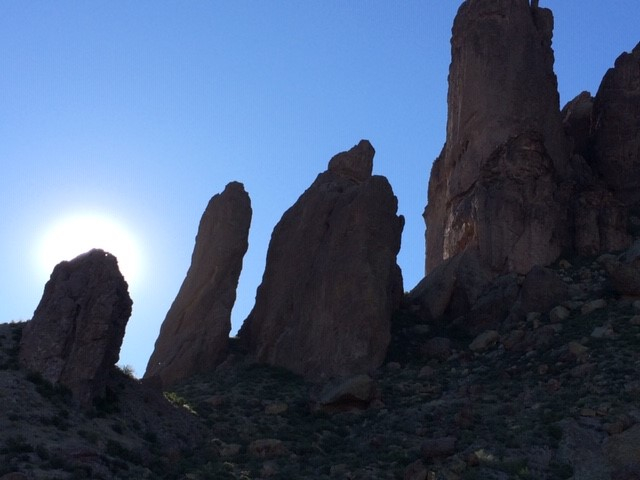
I’ve been taking prayer walks lately to reconnect my soul with the Creator of all that is good. My walks are a pause to fill the spaces, empty spaces perhaps, which have become apparent to me in this time of the pandemic crisis throughout the world. I no longer flit here and there without a moment’s consideration. Indeed, during this break from the predictability of routine, I have found a loneliness that seems to be a kind of rendering.
In poetry of the ancients as well as poetry of contemporary poets, a literary technique called a caesura (literally “a cutting” in Latin) is simply a pause in the flow of words, a placement within a line of verse. It was common in ancient Greece and Latin poetry to use double pipes // to indicate an audible pause in a metered line. Shakespeare had a knack for placing pauses in just the right places as indicated below by commas.
So long as men can breathe, or eyes can see,
So long lives this, and this gives life to thee.—Sonnet 18, William Shakespeare
Turn to most any page in a volume of poetry and you will find that most poems have an abundance of blank space around the poem itself as well as breaks in and between the lines. It is territory that is unspoken and uncluttered. It gives the eye and the tongue a chance to pause and to contemplate—in essence to breathe.
The caesura is found in music as well. Music Director and Conductor of the Philadelphia Orchestra and New York’s Metropolitan Opera, Yannick Nézet-Séquin speaks to the concept of silence in music when asked about the pause at the ending of his inaugural performance of Verdi’s “Requiem.”
The music that we play is also extremely powerful because it is silencing the outside voice for a while, and therefore silence in music is an incredibly valuable thing. And it might be the greatest values. You know, it’s what’s in between the notes.
That in-between territory in poetry and music is what I’ve been feeling lately. A caesura of sorts.
I ponder the Gospel of Luke, and imagine Christ’s retreat to a quiet place away from distraction to communicate with God.
But he withdrew to the wilderness and prayed. (Luke 5:16)
I read excerpts from various journal entries by poet Henry David Thoreau whose personal caesura was a walk he likened to the oldest dawn of time.
An early morning walk is a blessing for the whole day. To my neighbors who have risen in mist and rain I tell of a clear sunrise and the singing of birds as some traditionary mythus. I look back to those fresh but now remote hours as to the old dawn of time, when a solid and blooming health reigned and every deed was simple and heroic.
—April 20, 1840 journal entry, Henry David Thoreau
And so it is that I find a sense of purpose again, a sense of intrinsic beauty in creation again as I take my walks and speak to God. I am reminded of song lyrics written by Pete Seeger based on a passage from the third chapter of the old wisdom book of Ecclesiastes.
To everything (turn, turn, turn)
There is a season (turn, turn, turn)
And a time to every purpose, under heaven

Thanks for stopping by. ♥
https://www.npr.org/transcripts/916506941 Met Director Yannick Nézet-Séguin On Hope, Suffering and Verdi’s ‘Requiem’: NPR
https://ig.ft.com/life-of-a-song/turn-turn-turn.html
Cramer, Jeffrey S., I to Myself, An Annotated Selection from the Journal of Henry D. Thoreau. Yale University. New Haven and London, 2007.

